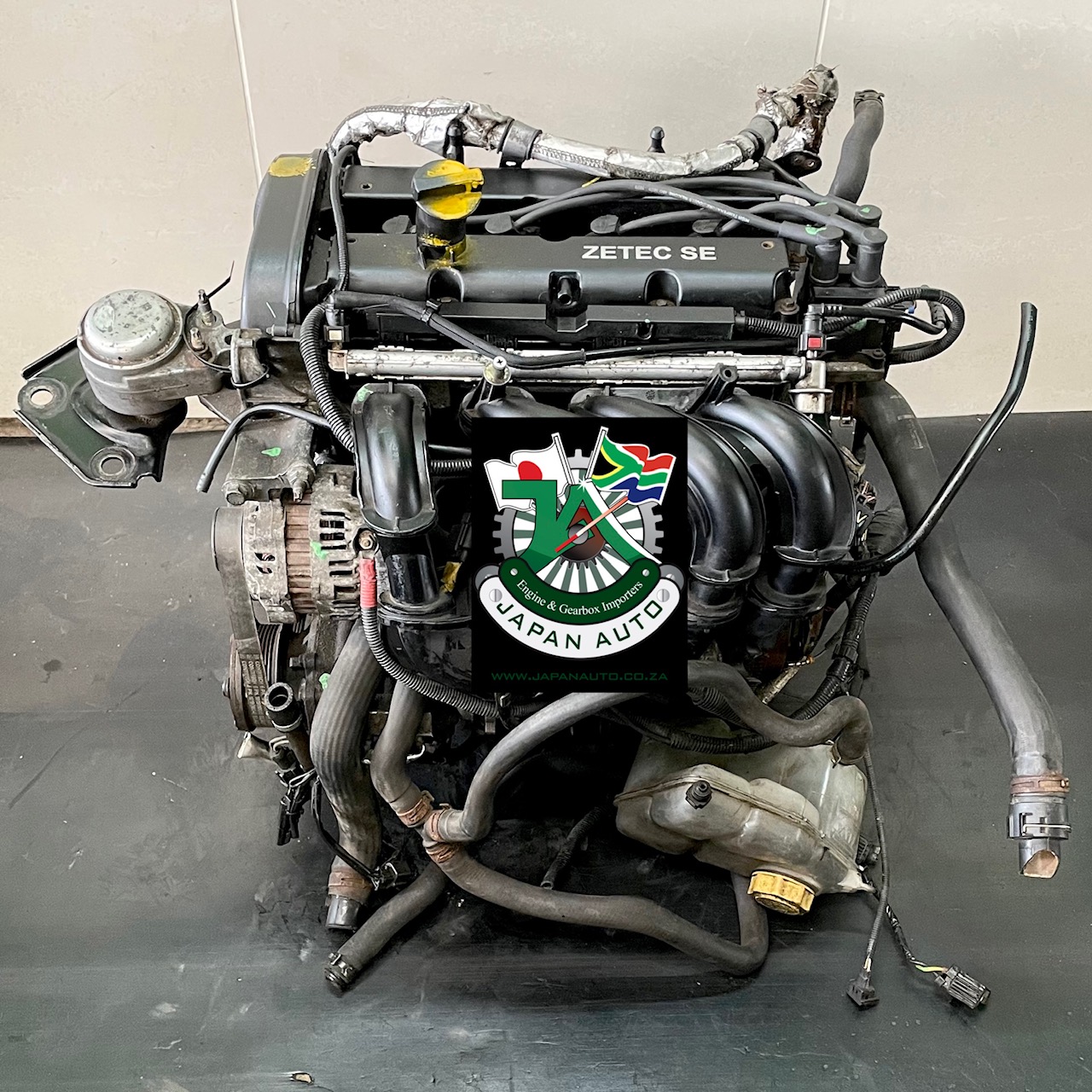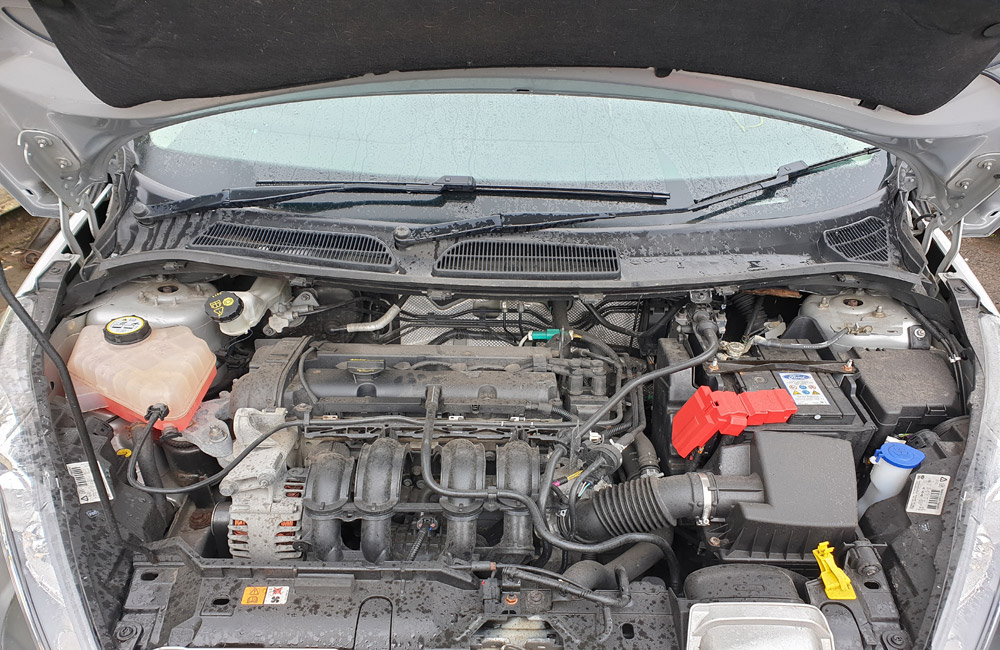Top Ford Fiesta Engine Repairs to Avoid Costly Damage
Wiki Article
The Future of Engines: Advancements Driving Lasting Power Solutions
As the automobile industry browses the important change towards sustainability, the future of engines is significantly defined by groundbreaking technologies. Electric engine advancements, along with appealing advancements in hydrogen fuel cells and biofuels, are improving the landscape of power services. The appearance of hybrid systems better complicates this development, providing both opportunities and challenges to minimize discharges successfully. Combined with the combination of fabricated knowledge in engine layout, these technical strides raise crucial concerns about their lasting stability and influence on standard standards. What might this imply for the industry and consumers alike?Electric Engine Developments
The development of electric engine growths represents a crucial change in the vehicle and aerospace industries, driven by the immediate demand for lasting alternatives to fossil gas. This shift is identified by considerable advancements in battery innovation, power electronic devices, and electrical motor layout, which collectively improve the performance and efficiency of electric engines.Current innovations have actually brought about the production of lighter, much more energy-dense batteries, such as lithium-silicon and solid-state batteries, which guarantee longer varieties and shorter charging times. Additionally, enhancements in electrical motor effectiveness, such as making use of long-term magnets and progressed cooling systems, make it possible for electric engines to operate successfully under differing problems. These enhancements not just improve car performance yet additionally add to a decrease in general energy consumption.
Furthermore, the combination of sophisticated software algorithms has actually maximized energy monitoring in electric vehicles, permitting regenerative braking and predictive billing approaches. As makers increasingly accept electrical propulsion, the automobile and aerospace markets are witnessing a standard shift in the direction of greener innovations. This evolution not just fulfills governing needs yet additionally straightens with customer choices for eco-friendly transportation services, strengthening electric engines as a cornerstone of future lasting flexibility.
Improvements in Biofuels
As the aerospace and automobile markets significantly focus on lasting energy sources, advancements in biofuels arise as a corresponding option to electrical engines. Biofuels, derived from natural materials such as crops, waste, and algae, provide an innovative avenue for decreasing greenhouse gas emissions and dependence on nonrenewable fuel sources.Recent study has actually concentrated on enhancing the performance and sustainability of biofuel manufacturing. Second-generation biofuels use non-food feedstocks, lessening competitors with food supply and decreasing ecological influence. Moreover, improvements in artificial biology have actually enabled the design of microorganisms to generate biofuels more efficiently, bring about greater returns and reduced production prices.
Additionally, the development of drop-in biofuels enables seamless integration into existing facilities, enabling a smoother transition for markets generally based on nonrenewable fuel sources. ford fiesta engine. These gas can be made use of in present engines without adjustments, facilitating their fostering across various sectors
Investments in biofuel modern technology, along with encouraging policies, are vital to drive development and scalability. As the worldwide area seeks to combat environment adjustment, biofuels use a pragmatic, instant option that aligns with the overarching objective of sustainability in transport and aviation.
Hydrogen Fuel Cell Technology
An expanding number of companies and scientists are discovering hydrogen fuel cell technology as a practical alternative to traditional power sources in transport and energy systems. This technology transforms chemical energy from hydrogen into electrical energy via an electrochemical reaction, with water as the only byproduct, making it an environmentally pleasant choice.have a peek at these guys The core of hydrogen gas cells is the fuel cell stack, where hydrogen molecules are divided right into electrons and protons. The circulation of electrons creates electricity, while protons move via a membrane to combine with oxygen from the air, creating water. This process causes high efficiency and reduced discharges, placing hydrogen fuel cells as an essential gamer in the change to lasting energy.
Substantial improvements have actually been made in improving the longevity and effectiveness of gas cells, alongside reducing expenses via ingenious production techniques. The advancement of hydrogen production approaches, such as electrolysis powered by renewable power resources, enhances the sustainability of the overall system. As framework for hydrogen refueling expands and manufacturing techniques come to be much more efficient, hydrogen gas cell innovation holds terrific promise for decarbonizing different markets, including sturdy transport and stationary power generation.
Hybrid Systems and Their Influence
Hybrid systems represent a considerable development in sustainable engine innovation, merging standard internal burning engines with electric propulsion to enhance energy effectiveness and why not try this out decrease exhausts (ford fiesta engine). This double approach enables vehicles to use both power sources, making it possible for greater versatility in power intake and minimizing reliance on nonrenewable fuel sources

In addition to environmental advantages, hybrid systems supply customers a sensible transition in the direction of completely electrical lorries. They relieve array anxiety by combining the convenience of fuel with the benefits of electric propulsion, making them an eye-catching alternative for a wider target market. As manufacturers purchase hybrid innovation, the advancement of even more innovative battery systems and lightweight materials remains to boost efficiency. Generally, crossbreed systems stand for an essential action towards accomplishing lasting transportation and attending to the urgent requirement for eco-friendly power remedies.
The Duty of AI in Engine Layout
Leveraging advanced algorithms and artificial intelligence strategies, the vehicle sector is increasingly incorporating expert system (AI) into engine design processes. AI improves the effectiveness and effectiveness of style by evaluating substantial datasets to identify ideal arrangements and performance parameters. This capability enables designers to mimic numerous operating problems and forecast engine actions under several scenarios, dramatically decreasing the moment and price related to traditional prototyping approaches.In addition, AI helps with the advancement of advanced materials and burning processes tailored for sustainability. By enhancing fuel efficiency and reducing emissions, AI-driven styles align with worldwide campaigns focused on minimizing the visit our website carbon impact of automobile engines. Maker discovering algorithms can additionally forecast maintenance needs, resulting in enhanced reliability and durability of engine components.
Moreover, AI is instrumental in the combination of electrification innovations, such as hybrid systems, where it can enhance battery management and energy recuperation processes. As the sector relocates in the direction of even more lasting power remedies, the function of AI in engine design ends up being increasingly essential, driving advancement and improving the efficiency of future engines. Inevitably, the cooperation between AI and engine layout proclaims a new period of smarter, cleaner, and much more reliable auto modern technologies.

Final Thought
In final thought, the future of engines is being shaped by a merging of innovative technologies that prioritize sustainability. Electric engine innovations, biofuel growths, hydrogen fuel cells, and crossbreed systems collectively contribute to a considerable reduction in emissions and ecological effect.Electric engine improvements, alongside appealing advancements in hydrogen gas cells and biofuels, are reshaping the landscape of power options. In addition, improvements in electric motor efficiency, such as the usage of long-term magnets and progressed cooling down systems, make it possible for electrical engines to run effectively under differing problems. By optimizing gas effectiveness and reducing emissions, AI-driven styles straighten with international campaigns intended at minimizing the carbon impact of vehicle engines. As the sector moves towards more sustainable power solutions, the role of AI in engine design becomes increasingly crucial, driving innovation and improving the efficiency of future engines. Electric engine developments, biofuel advancements, hydrogen fuel cells, and crossbreed systems jointly contribute to a considerable reduction in discharges and ecological influence.
Report this wiki page